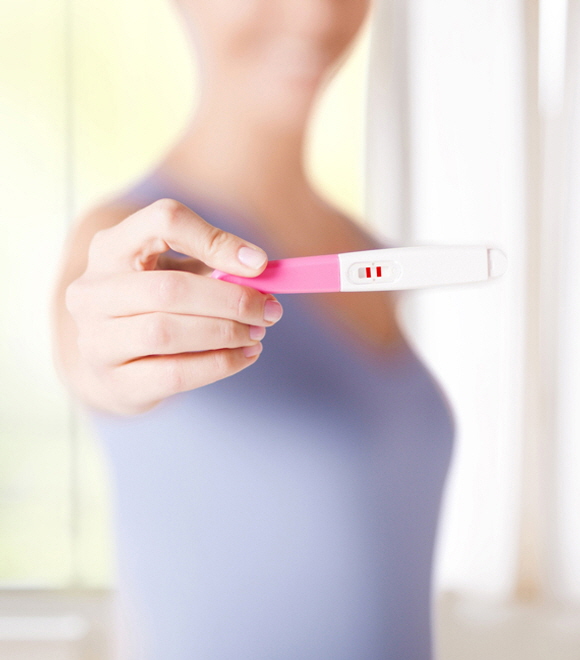

We are committed to delivering heartfelt care
to help you build a loving family.
At AMC Reproductive Medicine and Infertility Clinic, we provide diagnostic tests and treatments to support pregnancy in couples experiencing infertility. We also offer fertility preservation services for couples and unmarried individuals who are preparing to undergo treatments that may affect their reproductive cells. In addition, we perform fertility-preserving surgeries and procedures for patients with uterine tumors, ovarian tumors, or congenital anomalies of the reproductive organs.
-
Infertility
Infertility is defined as the inability to conceive after one year of regular unprotected intercourse. Potential causes include male factors such as sperm abnormalities, female factors involving the uterus, ovaries, or fallopian tubes, and genetic factors affecting either partner. To determine the underlying cause, diagnostic evaluations may include semen analysis, ovulation tracking, ultrasound imaging, immunological testing, and genetic screening.
Based on the identified causes of infertility, we offer treatments such as intrauterine insemination (IUI), in which sperm are processed in a specialized culture medium and then injected into the uterine cavity, in vitro fertilization and embryo transfer (IVF-ET), which involves retrieving sperm and eggs, fertilizing them outside the body, and transferring the resulting embryos into the uterus, intracytoplasmic sperm injection (ICSI), where a single sperm is directly injected into an egg to form embryos, and preimplantation genetic diagnosis (PGD), used to evaluate the embryo before uterine transfer when recurrent miscarriage or genetic disorders are suspected.
-
Fertility Preservation
Fertility preservation options include embryo cryopreservation after fertilization for couples, sperm or testicular tissue freezing for unmarried men, oocyte cryopreservation for unmarried women, and when oocyte preservation is not possible, ovarian suppression through hormone injections to temporarily halt the menstrual cycle.
Fertility preservation is recommended when treatments that may impact reproductive cells are anticipated, such as in patients with malignancies requiring chemotherapy or radiation therapy, as well as in certain benign conditions where treatment may impair fertility, including autoimmune diseases like systemic lupus erythematosus, Behçet’s disease, and Takayasu’s arteritis, hematologic disorders such as aplastic anemia and myelodysplastic syndrome, and genetic conditions involving congenital decline in ovarian function, including fragile X syndrome, Turner syndrome, and premature ovarian insufficiency.
In particular, for female patients scheduled to undergo pelvic radiation therapy for conditions such as cervical cancer or colorectal cancer, ovarian transposition is performed to relocate the ovaries outside the radiation field, thereby minimizing the risk of ovarian dysfunction.
-
Fertility-Preserving Treatments for Uterine Tumors, Uterine Anomalies, and Ovarian Tumors
(→ Requires an appointment through the outpatient clinic of the Department of Obstetrics and Gynecology, not through the Clinic)1) Ovarian Cyst Sclerotherapy
Surgical removal of ovarian cysts can sometimes lead to the loss of normal ovarian tissue and result in decreased ovarian function. As an alternative, sclerotherapy involves inserting a thin catheter into the ovarian cyst to aspirate its contents, followed by the injection of alcohol to chemically ablate the cyst lining. This method helps preserve normal ovarian tissue and minimizes the reduction of ovarian reserve.
2) Hysteromyomectomy
When fibroids are identified that may interfere with fertility or require surgical removal, a hysteromyomectomy is performed to remove only the fibroids while preserving the uterus. The procedure can be carried out using hysteroscopic, laparoscopic, robotic, or open surgical approaches.
3) Correction of Congenital Anomalies of the Female Genital Tract
Congenital anomalies of the uterus and vagina vary in form and presentation, and many are associated with reduced fertility and increased miscarriage rates. Among these, hysteroscopic septum resection in patients with a septate uterus has been shown to improve miscarriage rates. Corrective surgeries, such as uterine reconstruction for bicornuate uterus and neovagina creation for vaginal agenesis, may be performed in cases of congenital female reproductive tract anomalies that cause difficulty with conception.
AMC's Treatment Performance
AMC’s Reproductive Medicine and Infertility Clinic has performed more than 600 in vitro fertilization cycles in a year since the first procedure in 1995. Around 8,000 infertility patients were registered and around 10,000 patients were treated in the Reproductive Medicine and Infertility Clinic. Highly experienced medical professionals provide the best treatment in the most optimal environment. The success rate of in vitro fertilization per cycle is about 47%. This is an excellent outcome, given that the average age of infertile patients is 38.6 years old.
